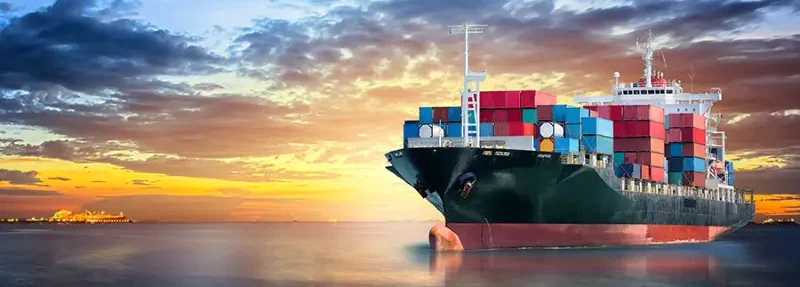Malaysia: a reality check — Exporter Magazine

Two years after two significant FTAs came into force, Cameron Gordon reviews the Malaysian export opportunity for New Zealand’s food and beverage exporters.
In 2010 the New Zealand Government made two significant public statements about the importance of the Malaysian economy to New Zealand – firstly in January with the entry into force of the ASEAN-Australia-New Zealand Free Trade Agreement (AANZFTA) and secondly, in August, with the entry into force of the New Zealand-Malaysia Free Trade Agreement.Both these FTAs give New Zealand exporters preferential access to what is currently our largest ASEAN merchandise trade export market. Exporters should indeed appreciate the positive trade platforms that these two FTAs have created.For the 12 months ended February 2012, merchandise trade exports from New Zealand to Malaysia experienced the greatest percentage increase out of exports to any of our top ten export destinations with a whopping increase in excess of 16 percentage points. There is no doubt that both the AANZFTA and New Zealand-Malaysia FTA can take some responsibility for this success.With a population of approximately 28 million people and a healthy demand for international goods and services, especially in the capital city of Kuala Lumpur, Malaysia presents very good opportunities for Kiwi exporters that are committed to developing new export markets. However, as with any potential export market a degree of caution is required and due diligence on new business opportunities should be carried out thoroughly.What the two FTAs that New Zealand has with Malaysia do not address are some of the non-tariff barriers that can make getting established in the market a challenge, especially for exporters of food and beverage products.New Zealand exporters should weigh up the opportunities with the challenges. The positive indicators, such as healthy trade statistics, need to be looked at in the context of the realities of doing business in what is a very different market to our traditional export markets of Australia, Europe and the US.
Halal certification
Being a Muslim nation, there are tight restrictions on the types of food and beverage products that can be sold in Malaysia, as Halal plays a very important role in the fabric of Malaysian society. What Halal means for New Zealand food exporters is that for their products to be sold in the mass market (we will cover niche markets a little later), they must be certified Halal by a certification body sanctioned by the Malaysia Department of Islamic Development, or Jakim for short. In New Zealand there are two certification bodies sanctioned by Jakim to provide Halal certification services; the Federation of Islamic Associations of New Zealand (FIANZ) and New Zealand Islamic Meat Management and New Zealand Islamic Processed Food Management, which are both based in Wellington. [See the ‘useful resources’ section for contact information on these two agencies.]Halal certification is a requirement for food products that will be sold in traditional trade and modern trade outlets to the greater Malaysian population. Retail buyers in these environments are rarely willing to stock items that are non-Halal. As a result it is very difficult for exporters of non-Halal mass market products from any country to convince importers and distributors in Malaysia that it is a good idea to import their products – quite simply because their channels to sell these types of products into are extremely limited.To obtain Halal certification for Malaysia New Zealand exporters must pay a fee to either one of the sanctioned Halal certification bodies which will in turn make an assessment about whether the product qualifies as Halal. If the product is approved a Halal certificate will be issued as confirmation.For exports to Malaysia, it is very important that exporters confirm before going through the Halal registration process that the certification body they are using is Jakim sanctioned – otherwise the process will be a wasted exercise.Where Halal certification is not as important in Malaysia is in niche modern retail outlets such as Cold Storage or Mercato supermarkets in the Kuala Lumpur metropolitan area. Generally consumers that shop at these outlets are either expatriates or Chinese Malay, who are not concerned about whether a product is Halal certified or not. Importers and distributors that supply these channels are more likely to import and distribute food and beverage products that are not Halal certified. There are a number of Malaysian companies that specialise in importing regular consolidated shipments of gourmet food and beverage products to satisfy the demand from consumers with a taste for international products.
Wine market
There is a growing consumer market for wine in Malaysia, but our wine exporters need to be cognisant of the sensitivities that exist in Malaysia around alcohol consumption. These constraints mean that the tariff and non-tariff barriers for wine imports are high. Much like in any country with barriers to entry, importers can, in some instances, use creative means to circumvent these barriers, which essentially allow them to put wine on the shelves at the lowest cost possible and maintain a healthy margin.It is important that wine exporters spend time getting to know the Malaysian market and its intricacies. Finding the right partner in Malaysia that can successfully manage the compliance and regulatory issues, while working in partnership with you to grow your brand in the market is crucial to achieving long-term success.The regulatory and compliance challenges in Malaysia often mean that buyers are often not as quick to jump at opportunities to partner with offshore suppliers as their Singaporean neighbors might be. So, if you are serious about developing the Malaysian market, regular visits to the country are necessary to show your commitment.The FTAs between New Zealand and Malaysia do encourage Malaysian importers and distributors to take a second look at opportunities to partner with New Zealand firms. In my frequent visits to Malaysia I see an enthusiasm from buyers to explore new opportunities. Converting this enthusiasm into export sales takes diligence.
To ensure that you give your company the best chance of succeeding in what can be a somewhat challenging market, begin by gaining a fundamental understanding of the unique factors that influence your category in Malaysia and the constraints that local regulations create. It’ll put you in good stead.
Publishing Information
Magazine Issue
Exporter magazine May/June 2012 Issue 23







